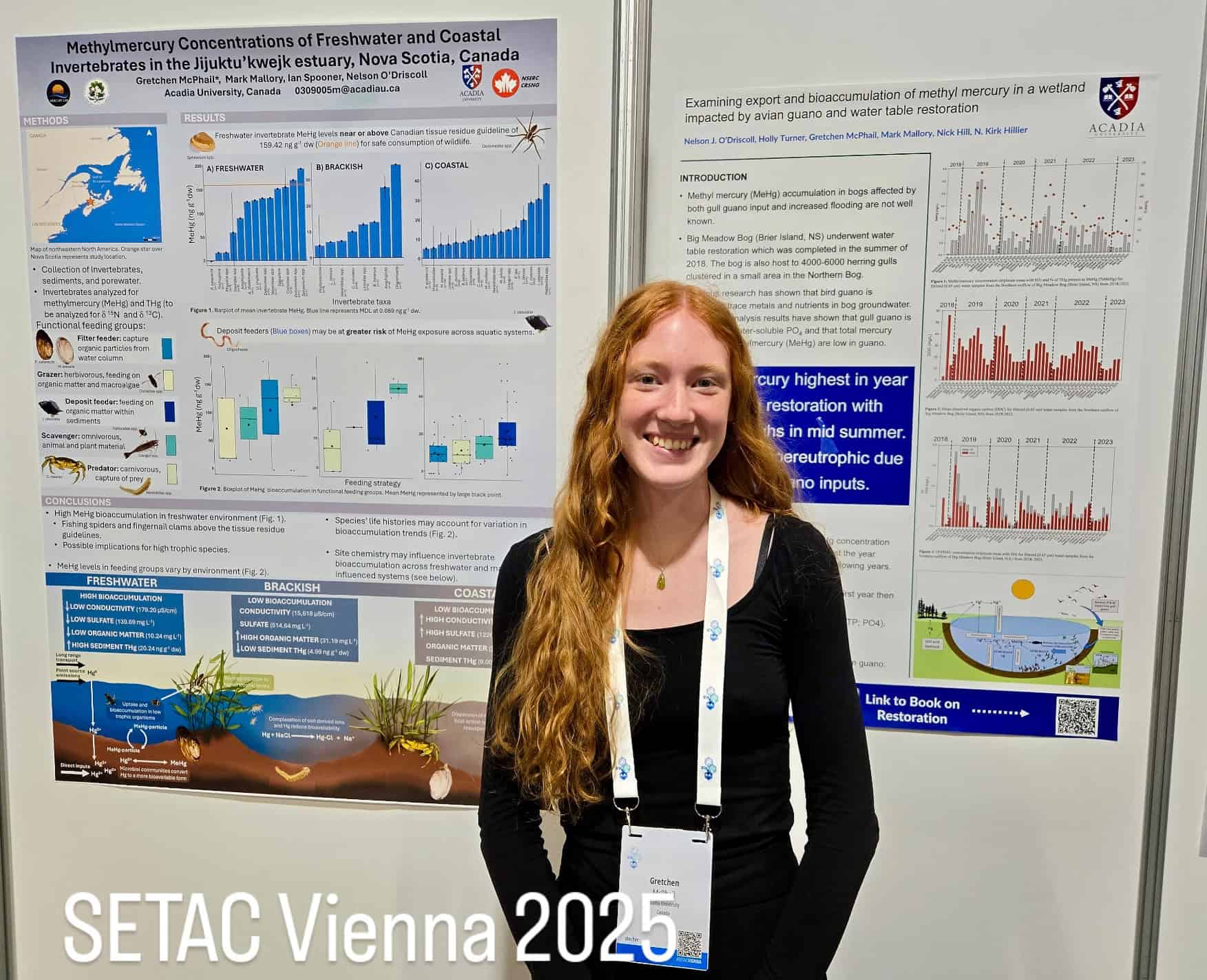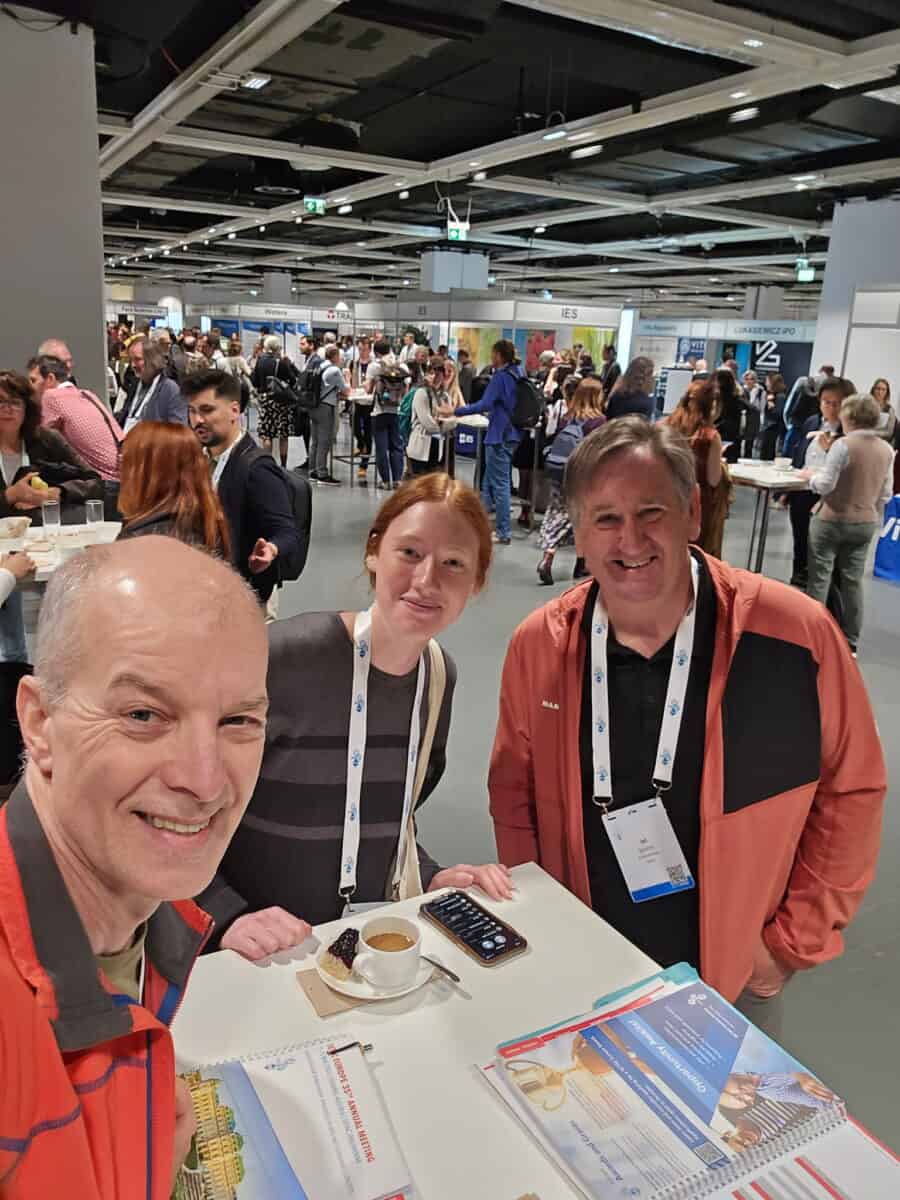
MSc Environmental Science student Gretchen McPhail recently represented Acadia University at the SETAC (Society of Environmental Toxicology and Chemistry) Europe 35th Annual Meeting in Vienna, Austria.
Held annually, the SETAC Europe conference brings together thousands of scientists, researchers, and environmental professionals from across the world to share the latest in environmental toxicology and chemistry. For Gretchen, the experience was both academically enriching and personally rewarding.
“It was incredible to meet so many researchers working on such diverse topics,” Gretchen said. “I learned a lot about contaminants outside of my thesis topic—like plastics and pharmaceuticals—and how they affect aquatic environments.”
Gretchen presented a poster summarizing her ongoing MSc research on mercury dynamics in estuarine ecosystems. Her work focuses on how mercury accumulates and magnifies in low-trophic invertebrates, and how this process is influenced by geochemical and ecological factors. “Estuarine systems are incredibly complex, and the fate of mercury in these dynamic environments is not well understood,” she explained.
Beyond presenting her research, Gretchen also had the opportunity to serve as a session co-chair, facilitating a discussion titled “Combined Effects of Contaminants and Global Change Stressors in Estuarine and Marine Environments” with Acadia’s Dr. Mark Mallory and two other ecological researchers, Dr. Ana Catarino and Dr. Antonia Praetorious.

Gretchen was joined at the conference by Acadia faculty members Dr. Mark Mallory and Dr. Ian Spooner, both of whom are collaborators on her research through Dr. Nelson O’Driscoll’s lab.
Outside of the conference sessions, Gretchen took time to explore Austria and surrounding countries, making the most of her travel by backpacking through parts of Europe. “I’m really thankful I had the chance to combine academic and personal growth on this trip,” she said.
With international experience now under her belt and a busy field season ahead, Gretchen is well on her way to making a significant impact in environmental science. Her participation in the SETAC Europe meeting marks another example of Acadia University’s commitment to fostering hands-on, globally relevant research among students.


 Acadia University
Acadia University